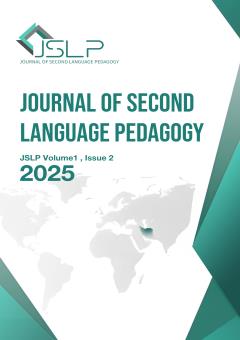The Orthographic Component of Mental Lexicon: A Review of Its Structure, Development, and Implications for Second Language Acquisition
محورهای موضوعی : Second Language Education
Saeid Najafi Sarem
1
![]() ,
Amir Hossein Lotfi
2
,
Amir Hossein Lotfi
2
![]()
1 - Department of English, Islamic Azad University, Hamedan Branch, Hamedan, Iran
2 - Department of English Language and Literature, University of Kurdistan, Iran
کلید واژه: Mental Lexicon, Orthographic Representation, Structure, Development, Implications, SLA,
چکیده مقاله :
The 'mental lexicon' plays a crucial role in language processing by defining the structural and conceptual relationships between words. While extensive research has focused on the phonological, semantic, and morphological aspects, the orthographic component remains underexplored. This review aims to provide a comprehensive analysis of the orthographic subcomponent of the mental lexicon, addressing its structure and storage. We define orthography as the written form of language and highlight its importance for language development, particularly in reading and writing. The relationship between orthography and phonology is examined, noting that phonological knowledge typically precedes orthographic knowledge. Additionally, we explore empirical studies on the organization of orthographic representations in both alphabetic languages and logographic systems like Chinese. Our findings indicate that the orthographic component actively contributes to language processing in alphabetic languages, while its role in logographic languages is less clear. We also discuss the implications of orthographic representation for language acquisition and advocate for further research in this area. Finally, we recommend that educators incorporate orthographic instruction and metacognitive strategies to enhance spelling skills and literacy outcomes for learners.
The 'mental lexicon' plays a crucial role in language processing by defining the structural and conceptual relationships between words. While extensive research has focused on the phonological, semantic, and morphological aspects, the orthographic component remains underexplored. This review aims to provide a comprehensive analysis of the orthographic subcomponent of the mental lexicon, addressing its structure and storage. We define orthography as the written form of language and highlight its importance for language development, particularly in reading and writing. The relationship between orthography and phonology is examined, noting that phonological knowledge typically precedes orthographic knowledge. Additionally, we explore empirical studies on the organization of orthographic representations in both alphabetic languages and logographic systems like Chinese. Our findings indicate that the orthographic component actively contributes to language processing in alphabetic languages, while its role in logographic languages is less clear. We also discuss the implications of orthographic representation for language acquisition and advocate for further research in this area. Finally, we recommend that educators incorporate orthographic instruction and metacognitive strategies to enhance spelling skills and literacy outcomes for learners.
Aitchison, J. (2003). Words in the mind: An introduction to the mental lexicon. Oxford: Blackwell.
Anderson, J. R., & Lebiere, C. J. (2014). The atomic components of thought. New York, NY: Psychology Press.
Bear, D. R., Invernizzi, M., Johnston, F., & Templeton, S. (1996). Words their way: Word study for phonics, vocabulary, and spelling. Upper Saddle River, NJ: Merrill
Bonin, P. (2004). Mental lexicon: Some words to talk about words. New York: Nova Science Publishers.
Caramazza, A., Laudanna, A,, & Romani, C (1988) Lexical access and inflectional morphology. Cognition, 28, 297-332.
Flavell, J. H. (1979). Metacognition and cognitive monitoring: A new area of cognitive–developmental inquiry. American psychologist, 34(10), 906.
Glushko, R. J. (1979) The organization and activation of orthographic knowledge in reading aloud. Journal of Experimental Psychology, Human Perception and Performance, 5, 674-691.
Goswami, U. (2002). Phonology, reading development, and dyslexia: A cross-linguistic perspective. Annals of dyslexia, 52, 139-163.
Hulme, C., & Snowling, M. J. (2013). Learning to read: What we know and what we need to understand better. Child Development Perspectives, 7(1), 1-5.
Laudanna, A. , Badecker, W. & Caramazza, A. (1989). Priming monographic stems. Journal of Memory and Language, 28, 531-546
Levelt, W. J. M. (1995). Speaking: From intention to articulation. Cambridge, Massachusetts: The MIT Press.
Liberman, I. Y., Liberman, A. M., Mattingly, L. G., & Shankweiler, D. (1980). Orthography and the beginning reader. In J. F. Kavanagh & R. L. Venezky (Eds.), Orthography, reading, and dyslexia (pp. 137-153). Austin, TX: Pro-Ed.
Lundberg, I., Olofsson, Å., & Wall, S. (1980). Reading and spelling skills in the first school years predicted from phonemic awareness skills in kindergarten. Scandinavian Journal of psychology, 21(1), 159-173.
Lupker, S.J. & Williams, B.A. (1989). Rhyme priming of pictures and words: A lexical activation account. Journal of Experimental Psychology: Learning, Memory, and Cognition, 15, 1033-1046.
McClelland, J. L., & Rumelhart, D. (1981). An interactive activation model of context effects in letter perception: Part 1. An account of basic findings. Psychological Review, 88, 375-407.
Miller, G. A. (1956). The magical number seven, plus or minus two: Some limits on our capacity for processing information. Psychological Review, 63(2), 81.
McCarthy, M. (1990). Vocabulary. Oxford: Oxford University Press.
Miller, G. A., & Gildea, P. M. (1987). How children learn words. Scientific American, 257(3), 94-99.
Napps, S.E. & Fowler (1987) Formal relationships among words and the organization of the mental lexicon. Journal of Psycholinguistic Research, 16, 257-272.
Paivio, A. (2013). Imagery and verbal processes. Psychology Press.
Pressley, T., Allington, R. L., & Pressley, M. (2023). Reading instruction that works: The case for balanced teaching. Guilford Publications.
Veenman, M. V., Van Hout-Wolters, B. H., & Afflerbach, P. (2006). Metacognition and learning: Conceptual and methodological considerations. Metacognition and learning, 1, 3-14.
Singleton, D. (2000). Language and the lexicon: An introduction. London: Arnold
Taylor, I & Taylor, M.M. (1990) Psycholinguistics: Learning and using. London, UK: Routledge.


